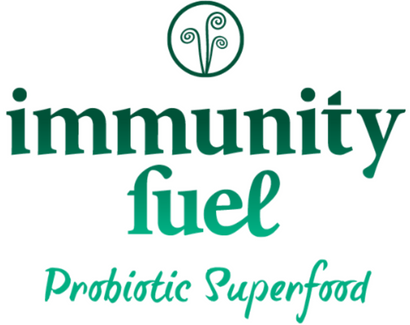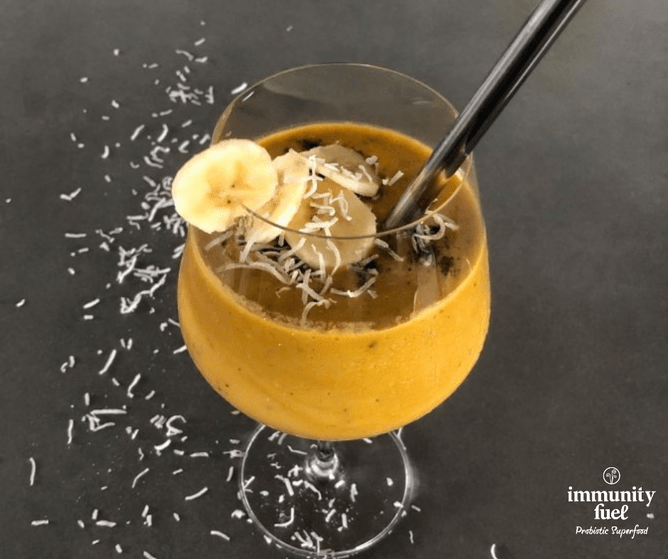Flat Rate Shipping AUS-Wide | Free Shipping Over $150 | Subscribe & Save
Flat Rate Shipping AUS-Wide | Free Shipping Over $150 | Subscribe & Save
Gut Inflammation and what you can do about it
November 05, 2024 3 min read

We've all experienced some sort of inflammation in our lives - whether it be a splinter in the finger, a cut toe, or congestion from having caught a cold.
But it is the symptoms of gut inflammation that seem to be the hardest to attribute to the underlying condition, and to manage on an on-going basis.
Read on for some practical tips that everyone can do to help manage inflammation today.
What is Inflammation?
Inflammation is basically the body’s immune system’s response to an irritant. The irritant might be a germ, bacteria, virus, wound or foreign object (acute inflammation) or an on-going cell inflammation such as rheumatoid arthritis or gut inflammations such as IBS (chronic inflammation).
The inflammation process occurs when your white blood cells protect you from infection from these outside invaders as your body tries to fight against the irritant.
Inflammation can show any of these signs: redness, heat, pain, swelling, loss of function. Examples of a loss of function include not being able to move an inflamed joint properly, having a worse sense of smell during a cold, finding it more difficult to breathe when you have bronchitis, fatigue, or abdominal pain. Some inflammations occur “silently” and don’t cause any symptoms.
Inflammation can occur anywhere in the body and may trigger any number of chronic diseases, depending on the area of the body affected.
Inflammation of the Gut
Gut inflammation can cause many unwanted health symptoms, from chronic constipation and fatigue to irregular periods, diarrhoea, or weight loss.
Chronic gut inflammation may be caused by Coeliac disease, or inflammatory bowel disease, where the lining of the digestive system becomes inflamed. 2 types of such inflammation are Chron’s disease, and Ulcerative Colitis.
These may be caused by many factors, such as diet, smoking, medications, composition of gut bacteria, or leaky gut. A few changes to your diet and lifestyle, however, might just be the key to helping you improve your gut health and control these symptoms.
10 Ways to Reduce the Symptoms of Inflammation
Usually we know when we are experiencing acute inflammation, as it is visible or the pain can be pinpointed (e.g. a cut, wound or if we have a cold or sinus infection).
If you experience any symptoms that feel unexplained, they could be due to chronic inflammation, and to help with this you can follow an anti-inflammatory diet & lifestyle to help relieve the symptoms.- Achieve and maintain a healthy weight
- Avoiding or quitting smoking
- Daily exercise (or at least three to five times per week)
- Limiting your alcohol intake
- Managing stress with healthy tools such as meditation, mindfulness, breathing exercises, and getting good night’s sleep
- Take organic probiotics to help promote healthy gut bacteria and fight bad gut bacteria.
- Ensure you are getting the right amount of vital nutrients such as B-vitamins, vitamin D, C and omega-3’s
- Drink plenty of fresh water
- Eat more of the foods that have anti-inflammatory properties, such as:
- Oily fish, such as mackerel, salmon or sardines.
- Leafy greens like spinach and kale
- Olive oil
- Tomatoes
- Turmeric
10. Eat less of the foods that may increase inflammation. If you have chronic inflammation, you may feel better if you avoid:
- Fried foods, including many fast-food items
- Cured meats with nitrates, such as hot dogs
- Highly refined oils and trans fats
- Refined carbohydrates, such as sugar, pastries or white bread.
If you are concerned about your gut health or if your inflammation persists, please consult with your healthcare professional.
Anti-Inflammatory Smoothie
Here is a really nice anti-inflammatory recipe created by our favourite nutritionist, Nancy.
Nancy has combined a tasty blend of ingredients that compliment each other and assist to reduce inflammation and support a healthy immune system.- 1 cup coconut milk
- 1 banana
- 1⁄2 cup mango
- 1⁄2 tablespoon coconut oil
- 1⁄2 teaspoon cinnamon
- 1 teaspoon fresh ground turmeric or turmeric powder
- 1 tsp chia seeds
- A small pinch of black pepper
- 1 tsp Immunity Fuel
Put all ingredients into a blender and blend until smooth.
Did you know?
Glutathione is the most powerful natural anti-inflammatory protein produced in the body. It is also an antioxidant, and it needs to be supported by foods containing natural antioxidants.
Turmeric is one of them. It contains Curcumin and it is able to boost the Glutathione production in our body. Turmeric is well absorbed by the body with piperine found in the black pepper.
Mangoes and bananas are a great source of fibre and antioxidants, including vitamin C, which means they support a healthy immune system and may help with inflammation.
Cinnamon and chia seeds are antioxidants too and they can help to reduce the inflammation.
Coconut oil and coconut milk are good source of antioxidants, which provide anti-inflammatory effects.
Nancy Bedora, Nutritionist

